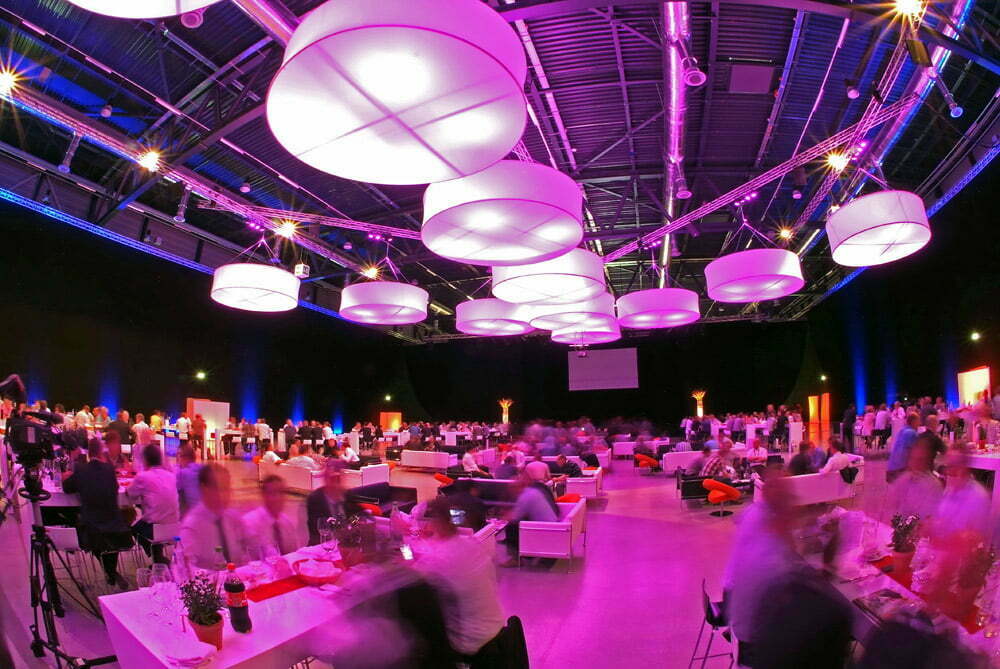Corporate events are a great way to bring people together and create lasting memories. But planning a successful corporate event can be challenging. From choosing the right venue to finding the perfect entertainment, there are a lot of things to consider. In this article, we will provide you with ten tips for planning a memorable corporate event.
Define Your Objectives
Before you start planning your corporate event, it is important to define your objectives. What do you want to achieve from the event? Are you looking to launch a new product or service, build team morale, or create networking opportunities? Once you have defined your objectives, you can start planning the event to achieve those objectives.
Defining your objectives is crucial because it determines the direction and focus of your event planning. It helps you to prioritize activities, set realistic timelines and budgets, and create a seamless experience for your attendees. When defining your objectives, make sure they are specific, measurable, achievable, relevant, and time-bound (SMART). This will help you to measure the success of your event and make adjustments as needed.
Set a Budget
Setting a budget is crucial for planning a successful corporate event. You need to determine how much you can spend on the event and allocate funds accordingly. When setting a budget, consider all the expenses, such as venue rental, catering, entertainment, transportation, and marketing.
To set a realistic budget, you need to understand the costs associated with each aspect of your event. For example, the cost of venue rental will depend on the location, size, and amenities of the venue. Catering costs will depend on the number of guests, menu selection, and service style. Entertainment costs will depend on the type of entertainment and the duration of the performance. By understanding these costs, you can allocate funds accordingly and avoid overspending.
Choose the Right Venue
The venue you choose can have a significant impact on the success of your event. The venue should be easily accessible, have ample parking, and be able to accommodate your guest list. Consider the layout of the venue and ensure that it is conducive to the activities you have planned. For example, if you are planning a conference, you will need a venue with a large conference room and breakout rooms for smaller sessions.
When choosing a venue, consider the location and accessibility for your attendees. Choose a venue that is convenient for them to get to and has ample parking. The venue should also be able to accommodate your guest list and have the necessary amenities, such as audiovisual equipment, staging, and lighting. Additionally, you should consider the style and ambience of the venue and ensure it aligns with the theme of your event.
Plan Your Activities
The activities you plan for your corporate event should align with your objectives. If you are looking to build team morale, consider team-building activities. If you are launching a new product, plan a product demonstration or a presentation. Make sure your activities are engaging and interactive to keep your guests entertained.
When planning your activities, consider the preferences and needs of your attendees. Choose activities that are relevant to their interests and align with your event objectives. Consider offering a variety of activities, such as workshops, networking sessions, and entertainment, to cater to different preferences.
Choose the Right Caterer
Food and drinks are an essential part of any corporate event. Choose a caterer that can accommodate any dietary restrictions and preferences of your guests. You should also consider the style of catering that best suits your event, such as buffet-style or plated service.
When choosing a caterer, consider their reputation, menu selection, and service style. Ask for referrals and read reviews from past clients to ensure the quality of their food and service. Consider scheduling a tasting to sample their menu and ensure it meets your expectations. Additionally, you should consider their ability to accommodate any special requests, such as custom menus or branded desserts.
Plan for Transportation
Transportation is an important aspect of your corporate event, especially if your guests are coming from out of town. Make sure you have a plan in place for transportation to and from the venue. This could include shuttle buses, car services, or public transportation.
When planning for transportation, consider the location of your venue and the needs of your guests. If your venue is in a remote location, provide shuttle buses or car services to transport your guests. If your guests will be traveling from out of town, provide information on public transportation and recommended car services.
Create a Marketing Strategy
Marketing is essential for promoting your corporate event and ensuring maximum attendance. Create a marketing strategy that includes a variety of channels, such as social media, email marketing, and targeted advertising. Use your marketing strategy to build anticipation and excitement for your event.
When creating your marketing strategy, consider your target audience and their preferences. Choose channels that are relevant to your audience and align with your event objectives. Use compelling visuals and messaging to capture their attention and communicate the value of attending your event.
Provide Engaging Entertainment
Entertainment is a crucial aspect of any corporate event. Choose entertainment that aligns with the theme of your event and engages your guests. This could include live music, comedians, magicians, or interactive experiences.
When choosing entertainment, consider the preferences and interests of your attendees. Choose entertainment that appeals to a broad audience and aligns with the theme of your event. Consider scheduling entertainment throughout the event to keep your guests engaged and entertained.
Provide Networking Opportunities
Networking is a key objective for many corporate events. Provide networking opportunities that allow your guests to connect and build relationships. This could include speed networking sessions, roundtable discussions, or informal networking breaks.
When planning your networking opportunities, consider the preferences and needs of your attendees. Provide a variety of networking opportunities that cater to different preferences and ensure they are facilitated to encourage engagement.
Follow Up with Attendees
Following up with attendees after your corporate event is essential for building relationships and nurturing leads. Send a thank you email to all attendees and include a survey to gather feedback on the event. Use the feedback to improve your future events and build relationships with your attendees.
When following up with attendees, personalize your communication and offer relevant resources or next steps. Use the feedback from your survey to improve your future events and address any concerns or suggestions from your attendees.
Planning a successful corporate event requires careful planning and attention to detail. By following these ten tips, you can plan a memorable corporate event that achieves your objectives and creates lasting memories for your attendees. Remember to define your objectives, set a budget, choose the right venue, plan your activities, choose the right caterer, plan for transportation, create a marketing strategy, provide engaging entertainment, provide networking opportunities, and follow up with attendees. Good luck with your event planning!

